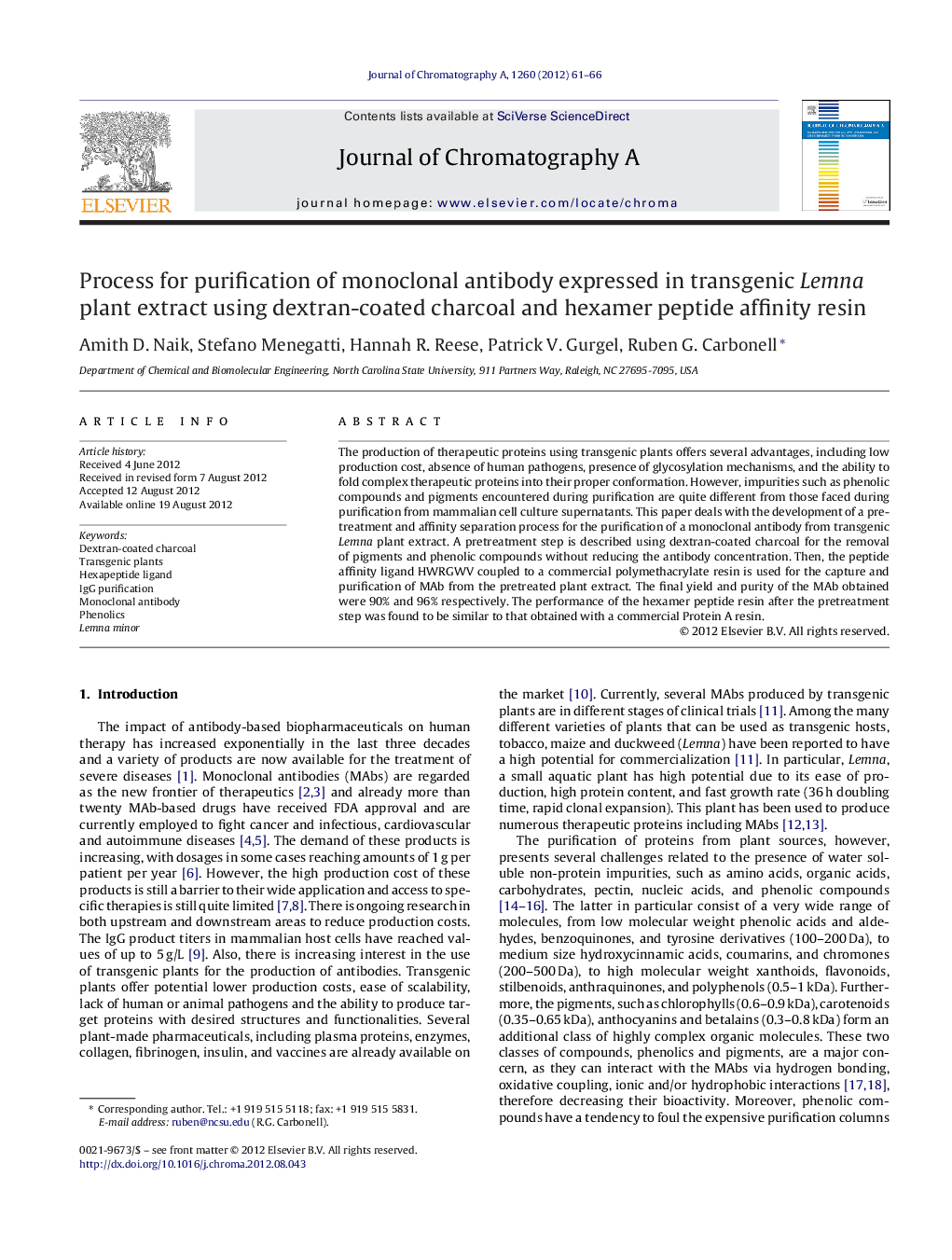| Article ID | Journal | Published Year | Pages | File Type |
|---|---|---|---|---|
| 1202155 | Journal of Chromatography A | 2012 | 6 Pages |
The production of therapeutic proteins using transgenic plants offers several advantages, including low production cost, absence of human pathogens, presence of glycosylation mechanisms, and the ability to fold complex therapeutic proteins into their proper conformation. However, impurities such as phenolic compounds and pigments encountered during purification are quite different from those faced during purification from mammalian cell culture supernatants. This paper deals with the development of a pretreatment and affinity separation process for the purification of a monoclonal antibody from transgenic Lemna plant extract. A pretreatment step is described using dextran-coated charcoal for the removal of pigments and phenolic compounds without reducing the antibody concentration. Then, the peptide affinity ligand HWRGWV coupled to a commercial polymethacrylate resin is used for the capture and purification of MAb from the pretreated plant extract. The final yield and purity of the MAb obtained were 90% and 96% respectively. The performance of the hexamer peptide resin after the pretreatment step was found to be similar to that obtained with a commercial Protein A resin.
► This paper deals with the purification of a monoclonal IgG from a plant extract. ► We used a two-step approach, with a charcoal treatment and affinity chromatography step. ► The final product shows high purity and recovery, competitive to commercial products.
